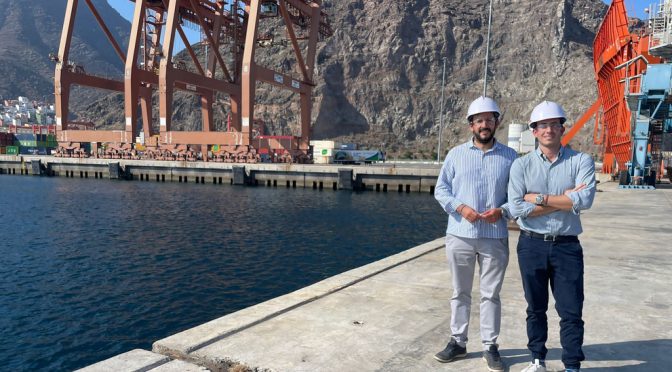The energy company aims to maintain the same market share in offshore wind power in 2030 that it currently holds in the processing of onshore wind projects
Capital Energy seals two MOUs with ASTICAN and ZAMAKONA YARDS in order to use their port facilities, as well as the different services they provide, to meet the needs arising from the future construction of marine parks in the Canary archipelago
These five-year, renewable collaboration agreements contemplate, among other issues, the manufacture of floating foundations, their assembly with turbines, the storage of all types of components, the transport of people and materials or construction. from the O&M base
The agreements, which respond to Capital Energy's commitment to the development of the territories in which it carries out its activity, ratify the company's commitment to this community, which it considers strategic for the development of 'offshore' wind energy in SpainLas Palmas de Gran Canaria, October 18, 2021.- Capital Energy, a Spanish energy company born in 2002 and whose vocation is to become the first 100% vertically integrated renewable operator in the Iberian Peninsula, has begun to take its first steps to break into in the incipient sector of offshore wind energy in Spain.
The renewable energy company has just signed its first two strategic collaboration agreements (MOU) with both shipyards in the Canary Islands, ASTICAN and ZAMAKONA YARDS, through which these companies will make their port facilities available to Capital Energy, as well as the different services they provide. , to meet the needs arising from the future construction of marine parks in the archipelago.
These five-year, renewable agreements cover, among other issues, the manufacturing, commissioning and launching of the floating foundations and mooring systems, the assembly of the turbines and the storage of all kinds of components necessary for the construction of a marine park: turbines, floating foundations, mooring systems, submarine electrical cables with their accessories, etc.
Likewise, Capital Energy has agreed with ASTICAN and ZAMAKONA YARDS that these shipyards take charge of the offshore logistics necessary during the construction phase, such as the transport of personnel / materials, surveillance boats, flotels, etc. Finally, they may provide operation and maintenance services, including the construction and operation of the O&M base or technical inspections of the park.
Through these framework agreements, which respond to Capital Energy’s commitment to the industrial fabric of the regions in which it carries out its activity, the company’s commitment to this autonomous community is ratified, which it considers strategic for the development of wind energy offshore. In this sense, it will continue to promote the signing of agreements with administrations, companies and local groups that can benefit from the driving effect that it plans to exercise with its activity in the Canary Islands.
Juan José Sánchez, CEO of Capital Energy, has assured that “we try to reconcile our contribution to the progressive decarbonization of the economy, through the implementation of renewable energies, with the promotion of the economic and social development of all the territories in which that we operate, as evidenced by the signing of these agreements with such relevant Canarian companies that they will serve to promote our project in the offshore wind sector ”.
For his part, Germán Suárez, president and CEO of ASTICAN, has pointed out that “the decarbonization of the economy in the coming decades until reaching the objectives of the European Union in 2050, when we finally become a climate-neutral continent , is opening up endless opportunities for economic diversification, and we are only at the beginning. In our shipyards we not only want to contribute and participate in the decarbonization of maritime transport, executing changes and improvements in the existing fleet of ships so that it complies with the demanded requirements of environmental sustainability, but also, due to our industrial capacity, our experience of decades in the naval sector and our strategically located infrastructures, we will also be an essential link in the value chain involved in the construction, assembly, and installation of any fixed or floating structure dedicated to the generation of energy based on the sea ”.


